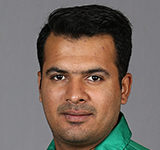Web Desk
Pakistan’s most populous province, Punjab has announced the launch of two-week ‘Typhoid Conjugate Vaccine’ drive from 1st February.
During the campaign around 20 million children between 9 months to 15 years will be vaccinated, making Pakistan the third country in the world to start this campaign.
The campaign will initially start from 12 districts i.e. Lahore, Rawalpindi Mianwali, Chakwal, Pakpattan, Multan, DG Khan, Layyah, Rajanpur, Mandi Bahauddin, Gujranwala and Faisalabad. That would be followed by a similar campaign in remaining 24 districts of the province.
In 2017, 63% of typhoid cases and 70% of typhoid deaths in Pakistan were among children younger than 15 years of age.
To protect our 20 Million Children, we are starting @WHO recommended "Typhoid Conjugate Vaccine" drive in Punjab from 1st to 15th February!
— Usman Buzdar (@UsmanAKBuzdar) January 27, 2021
Speaking at the launch ceremony held in Pakistan’s eastern city of Lahore, Punjab’s Chief Minister, Usman Buzdar said, “In 2017, 63% of typhoid cases and 70% of typhoid deaths in Pakistan were among children younger than 15 years of age. To protect our 20 Million Children, we are starting @WHO recommended “Typhoid Conjugate Vaccine” drive-in Punjab from 1st to 15th February!,” he explained.
Pakistan had introduced typhoid conjugate vaccine (TCV) into routine immunization schedule on November 20, 2019, becoming the first country in the world to do so.
The concept of immunization, usually termed Expanded Programme on Immunization (EPI) was launched in Pakistan in 1978 to protect children by immunizing them against childhood tuberculosis, poliomyelitis, diphtheria, pertussis, tetanus and measles. Later, with the support of development partners, a number of new vaccines e.g. hepatitis B, haemophilus influenzae type b (Hib) and pneumococcal vaccine (PCV10) were introduced in 2002, 2009 and 2012, and inactivated polio vaccine in 2015, respectively.
The national immunization programme has contributed tosignificantly decreasing childhood morbidity and mortality due to vaccine preventable diseases. A child needs only 5 visits during the first year and one visit during the second year of his/her life to complete the vaccination with 6 visits against 9 dreadful diseases.
The Pakistan EPI programme has adopted its goals and strategies in accordance with priorities set at the global and regional level. The National Immunization Technical Advisory Group (NITAG), was established in 2008, by the Ministry of Health in accordance with WHO guidelines. A programme policy/guideline document was developed in 2015 with the support of partners. The document lays out policy direction and guidelines for involvement of lady health workers in immunization service delivery, and in the area of the private sector’s role in immunization.
The new immunization policy envisages Pakistan’s Vision 2025 by addressing its key goal – to reduce infant mortality rate from 74 to less than 40 (per 1000 births) and reduce maternal mortality rate from 276 to less than 140 (per 1000 births) and continue reducing the infant mortality rate through immunization targets and activities in order to achieve SDG 3 for the country.















